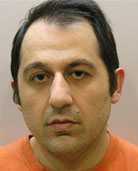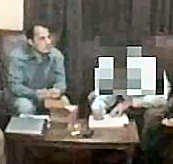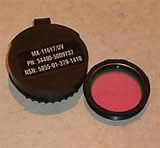 A criminal complaint recently filed in the United States District Court for the Central District of California accuses David Zhang and Nicola Huang with exporting controlled analog to digital conversion technology to China without a required license from the Bureau of Industry and Security (“BIS”). At least part of the interest of this case is that it involves an export of EAR-controlled technology. Most cases arising under the EAR generally involve the export of controlled goods, and the reason for that is probably related to the increased difficulty of proving technology exports.
A criminal complaint recently filed in the United States District Court for the Central District of California accuses David Zhang and Nicola Huang with exporting controlled analog to digital conversion technology to China without a required license from the Bureau of Industry and Security (“BIS”). At least part of the interest of this case is that it involves an export of EAR-controlled technology. Most cases arising under the EAR generally involve the export of controlled goods, and the reason for that is probably related to the increased difficulty of proving technology exports.
The complaint alleges that the defendants engaged two engineers to assist them in carrying out an agreement to design for the Sichuan Institute for Solid State Circuits two analog-to-digital conversion (ADC) devices. One of the devices was to be an 8-bit 1.5 GSPS device and the other was to be 14-bit 125 MSPS. The criminal complaint alleges that these devices were described in ECCN 3A001.a.5.a.1 and 3A001.a.5.a.4, which would mean that the technology would be classified as ECCN 3E001.
Of course, the first prerequisite to a criminal charge here is to prove that this was controlled technology. Sections 734.7 and 734.8 of the EAR exempt information that has been published or that is the product of fundamental research. Almost all of the technology involved in analog to digital conversion is well-known and subject to these exemptions. The critical element for high-speed ADC devices is the know-how involved in fabricating components with the high degree of timing accuracy required. Nothing in the criminal complaint establishes or even suggests that the defendants provided any technology that wasn’t well-known or that provided the know-how to manufacture the highly precise components.
A second obstacle in this prosecution is the wording of the relevant ECCNs. ECCN 3A001.a.5.a.1 covers devices with “a resolution of 8 bit [sic] or more, but less than 10 bit [sic], with an output rate greater than 500 million words per second.” ECCN 3A001.a.5.a.4 covers devices with “[a] resolution of more than 12 bit [sic] but equal to or less than 14 bit [sic] with an output rate greater than 10 million words per second.” The EAR does not define the term “word” and there seems to be no clear definition of “word” in the context of data transmission.
In many instances, the term “word” is used in conjunction with a set number of bits, such as “4-bit word.” In other instances, “word” is used as equal to the bit-depth of the sampling performed by the device. In other instances, “word” is used to denote the logical size of an address in system memory. And finally sometimes “word” is used as an arbitrary but fixed size that is specifically stated, such as a “10-bit word.”
Although word isn’t defined in the ECCN, there is a technical note that defines “words per second” as “samples per second.” That seems an odd definition based on other common uses of word in the context of data transmission. It also seems needlessly complex, since the ECCN should, given that definition, say directly that an x-bit ADC is covered if the ADC’s sample rate exceeds y-million samples per second. But, by that definition, both ADCs do fall within the respective ECCNs.
A final point of interest is that the complaint tries to bolster its case by noting that two agents of Immigration and Customs Enforcement made a Project Shield America presentation at the defendant’s company. Based on that, the government assumes that the defendants were thereafter fully cognizant of all elements of U.S. export laws discussed in that presentation. This demonstrates, I think, that Project Shield America presentations are a double-edged sword that although billed as a purely educational program are also intended to be used as evidence in subsequent prosecutions. In my view, exporters are better off obtaining information about export compliance from private sources so that these presentations won’t later be used against them.

 Posted by
Posted by  Category:
Category: 



 Face it, we export folks have always felt that we weren’t part of cool crowd. We work with agencies that absolutely no one else has ever heard of. Our shop talk is littered with more acronyms than your kid’s bowl of Alpha-Bits cereal. We have to advise people to comply with regulations that regularly prompt those people to say “Tell me you’re joking.”
Face it, we export folks have always felt that we weren’t part of cool crowd. We work with agencies that absolutely no one else has ever heard of. Our shop talk is littered with more acronyms than your kid’s bowl of Alpha-Bits cereal. We have to advise people to comply with regulations that regularly prompt those people to say “Tell me you’re joking.”


